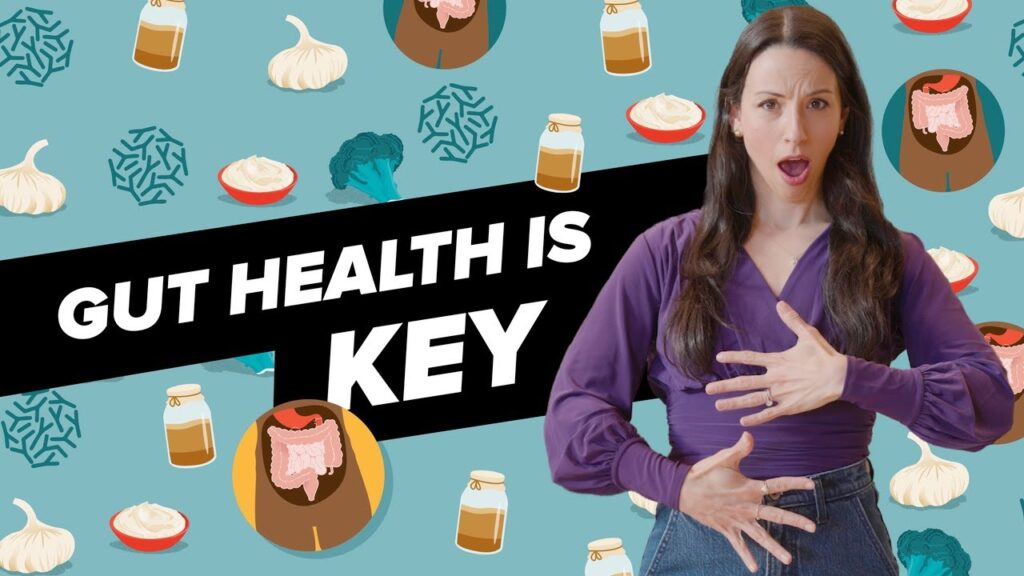
Gut Health Advice for Women: A Complete Guide to a Healthier Digestive System
Gut health is increasingly recognized as the cornerstone of overall wellness. For women, maintaining a healthy gut goes beyond digestion—it influences hormonal balance, mental health, immunity, and even skin health. Yet, gut health challenges like bloating, constipation, irritable bowel syndrome (IBS), and food intolerances disproportionately affect women. In this blog, we’ll explore why gut health is so important for women, common digestive challenges, and practical, science-backed strategies to support a healthier gut.
Why Gut Health Matters More for Women
Women’s digestive systems are influenced not only by diet and lifestyle but also by hormonal fluctuations. Estrogen and progesterone affect gut motility and sensitivity, meaning women often experience digestive symptoms around menstrual cycles, during pregnancy, or in menopause.
- Hormonal influence: Hormonal changes can worsen bloating, constipation, or diarrhea. (NCBI)
- Gut-brain axis: Women are nearly twice as likely to suffer from anxiety and depression, conditions closely linked to gut microbiome imbalances. (Harvard Health)
- Immunity: Nearly 70% of the immune system resides in the gut. Women, being more prone to autoimmune conditions, benefit greatly from a balanced gut microbiome. (Johns Hopkins Medicine)
Common Gut Health Challenges in Women
1. Irritable Bowel Syndrome (IBS)
IBS is more prevalent in women, often triggered by stress, diet, or hormonal changes. Symptoms include abdominal pain, bloating, and irregular bowel movements.
2. Bloating
Women frequently experience bloating during menstrual cycles. Certain foods (like dairy or high-FODMAP foods) can worsen this.
3. Constipation
Hormonal fluctuations, sedentary lifestyles, and low-fiber diets make women more prone to constipation.
4. Food Sensitivities
Women report lactose intolerance, gluten sensitivity, and other dietary triggers more often than men.
5. Gut-Skin Connection
Poor gut health may contribute to acne, eczema, and rosacea. An imbalanced microbiome can lead to inflammation that manifests in the skin.
Nutrition Tips for Better Gut Health
1. Eat More Fiber
Fiber feeds beneficial gut bacteria and improves bowel movements. Women should aim for at least 25 grams of fiber daily.
- Sources: oats, beans, chia seeds, lentils, broccoli.
2. Incorporate Probiotics
Probiotics introduce healthy bacteria that balance gut flora.
- Sources: yogurt, kefir, sauerkraut, kimchi, kombucha. (Cleveland Clinic)
3. Include Prebiotics
Prebiotics feed probiotics, helping them thrive.
- Sources: garlic, onions, asparagus, bananas, whole grains.
4. Stay Hydrated
Adequate water intake prevents constipation and supports digestion.
5. Limit Processed Foods & Sugar
Refined sugar and processed foods encourage the growth of harmful bacteria, leading to dysbiosis.
6. Mindful Eating
Eating slowly and chewing thoroughly aids digestion and reduces bloating.
Lifestyle Habits for a Healthier Gut
1. Manage Stress
Stress alters the gut microbiome and worsens IBS symptoms. Mindfulness, yoga, and deep breathing exercises can restore balance.
2. Exercise Regularly
Physical activity improves gut motility and supports microbiome diversity. Even 30 minutes of brisk walking daily helps.
3. Sleep Well
Poor sleep disrupts the gut microbiome. Women should aim for 7–9 hours of restful sleep.
4. Avoid Unnecessary Antibiotics
Overuse of antibiotics can wipe out healthy bacteria, leading to long-term gut issues.
5. Cycle Syncing Nutrition
Adjusting diet according to menstrual phases (e.g., more magnesium-rich foods during PMS) may improve digestive comfort.
Gut Health & Women’s Life Stages
Pregnancy
A healthy gut supports nutrient absorption crucial for fetal development. Probiotics may help reduce gestational diabetes and preeclampsia risk. (Frontiers in Microbiology)
Menopause
Declining estrogen affects the gut microbiome, increasing risk for metabolic disorders. A fiber-rich diet and probiotics can mitigate these changes.
Aging
Older women often experience reduced gut microbial diversity. Staying active and eating a nutrient-dense diet helps maintain gut health.
The Gut-Brain-Skin Connection
- Gut-Brain: Stress and mood disorders often worsen gut issues. Supporting gut health can reduce anxiety and depression.
- Gut-Skin: Clearer skin often follows when inflammation in the gut is reduced.
- Gut-Hormones: Balanced gut bacteria help regulate estrogen metabolism, reducing risks of PMS, PCOS, and menopause symptoms.
Practical Daily Routine for Gut Health
- Start the day with warm water and lemon.
- Eat a fiber-rich breakfast (oats with berries).
- Incorporate fermented foods at lunch.
- Stay hydrated throughout the day.
- Do light exercises or walking post meals.
- Practice mindful breathing or meditation in the evening.
- End the day with a light, early dinner.
When to Seek Medical Help
Women should consult a doctor if they experience:
- Persistent bloating or abdominal pain.
- Blood in stools.
- Unexplained weight loss.
- Chronic constipation or diarrhea.
A gastroenterologist or dietitian can help diagnose and treat underlying conditions.
Conclusion
Gut health is the foundation of women’s overall well-being, influencing everything from digestion to hormones, immunity, and mental health. By making small but consistent dietary and lifestyle changes—like increasing fiber, consuming probiotics, managing stress, and prioritizing sleep—women can significantly improve their gut health. Supporting your gut is not just about digestion; it’s about building resilience, energy, and vitality for every stage of life.
References



